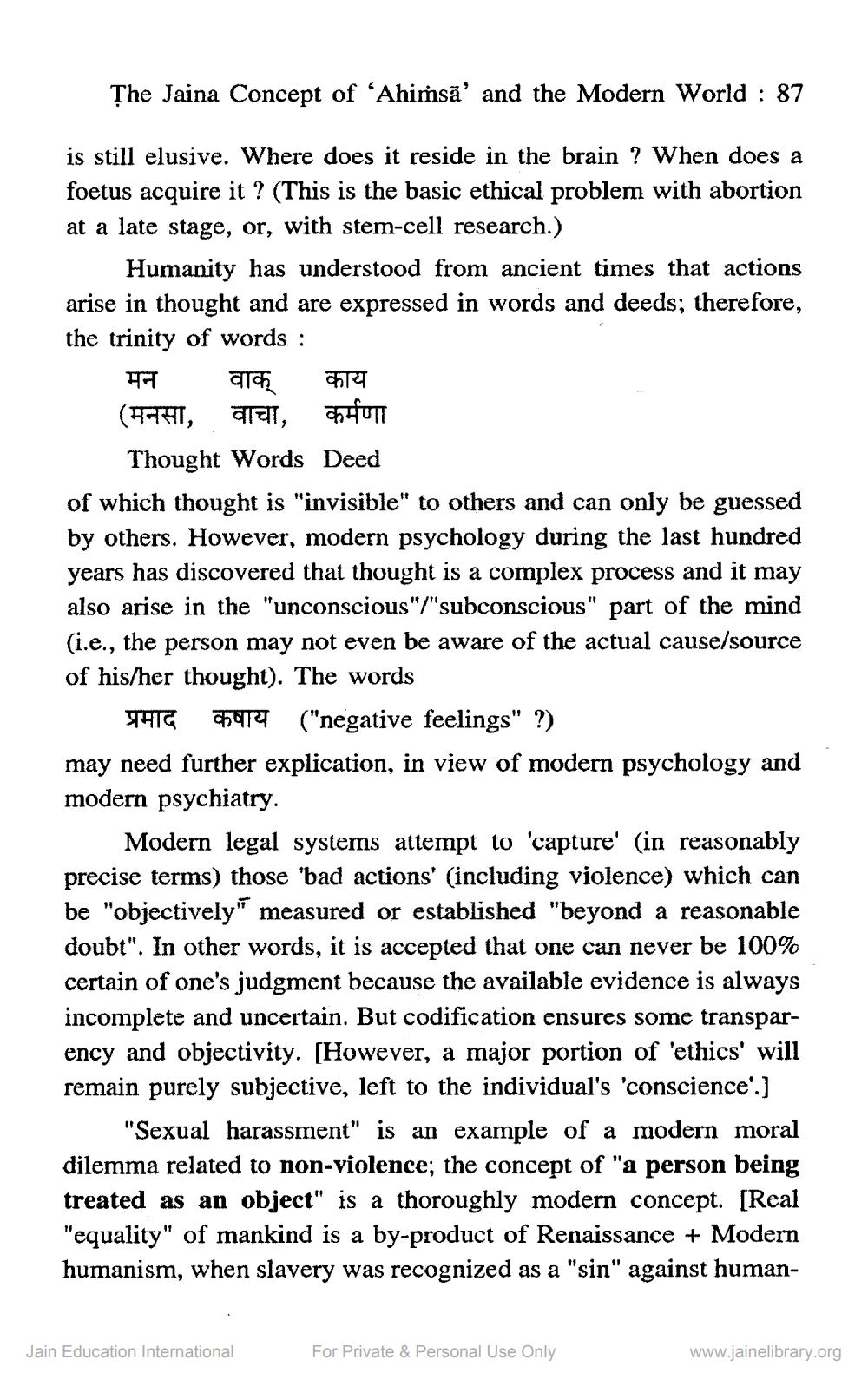________________
The Jaina Concept of 'Ahimsã' and the Modern World : 87
is still elusive. Where does it reside in the brain ? When does a foetus acquire it ? (This is the basic ethical problem with abortion at a late stage, or, with stem-cell research.)
Humanity has understood from ancient times that actions arise in thought and are expressed in words and deeds; therefore, the trinity of words :
मन वाक् काय (HAFT, DIET, 094011
Thought Words Deed of which thought is "invisible" to others and can only be guessed by others. However, modern psychology during the last hundred years has discovered that thought is a complex process and it may also arise in the "unconscious"/"subconscious" part of the mind (i.e., the person may not even be aware of the actual cause/source of his/her thought). The words
MAIG 2014 ("negative feelings" ?) may need further explication, in view of modern psychology and modern psychiatry.
Modern legal systems attempt to 'capture' (in reasonably precise terms) those 'bad actions' (including violence) which can be "objectively" measured or established "beyond a reasonable doubt". In other words, it is accepted that one can never be 100% certain of one's judgment because the available evidence is always incomplete and uncertain. But codification ensures some transparency and objectivity. [However, a major portion of 'ethics' will remain purely subjective, left to the individual's 'conscience'.)
"Sexual harassment" is an example of a modern moral dilemma related to non-violence; the concept of "a person being treated as an object" is a thoroughly modern concept. [Real "equality" of mankind is a by-product of Renaissance + Modern humanism, when slavery was recognized as a "sin" against human
Jain Education International
For Private & Personal Use Only
www.jainelibrary.org




